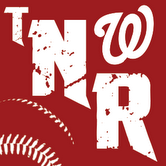Chien-Ming Wang pitched moderately well last night in Syracuse, and it seems like a foregone conclusion that he will be joining the Nationals rotation around July 29. The Nats don’t have much of a choice – they either have to promote him by then or designate him for assignment. You have to figure someone would get him, for free  without any compensation to the Nats, if they do that. So… expect it.
without any compensation to the Nats, if they do that. So… expect it.
I have no idea whether he will be able to induce grounders and prevent walks like he’s done in the past. I’d like to think he can, but that’s not really what I’m talking about here. What happens if he does do those things? What do the Nats do with him? He’s only got a dozen or so starts ahead of him this year, then he’s a free agent. He gets to leave. He won’t be here early enough to showcase for a trade. So they spend up to $6M (but probably less) for two years of his presence, but get only 11 starts? That seems like a waste of time and effort. Unless…
No, I’m not gonna say unless they go on some crazy playoff run. Anything success this season is great to build on, but this isn’t a playoff team. The “unless” is “unless they sign him to an extension”. They just can’t count on him returning to thank them, but a one or two year extension signed in August would be a guarantee of money for him and he might be more likely to do something like this before he sees how many suitors are out there.
Now, before you go all crazy and say that he hasn’t proven anything, I’m not suggesting they do this today. There are some key indicators that need to work for him to get and extension. First and foremost in the grounders. In his best years with the Yankees, his GB/FB ratio varied, but his career average of 1.50 seems like a good mark. His GO/AO ratio was over 2.00 in his three best seasons, and even in his worst it was that high. So he has to demonstrate that he’s keeping the ball on the ground. The other thing he does really well is not issue walks. He doesn’t strike many people out, so his K/BB ratios aren’t great – around 1.50. But his BB/9 remained below 3 for his best years, was 3.3 in his second worst year, and jumped to 4.1 in his worst.
Wang is not a dominating pitcher, and he never has been. He would give up hits even when he was doing well. In his first 4 years, he went 54-20, with a 3.79 ERA, despite giving up just over a hit per inning. Because he walked so few, his WHIP was 1.293, not great, but not bad considering the hits. What he does well is cause so many grounders and give up so few homers and walks that it is just hard to score on him. Rather than a walk here and a double then a homer there, you really need to string together single after single after single to get to him. So if he goes 7 innings, walks 2 and gives up 7 hits, chances are most of those hits are singles. They might drive in 2 or 3 runs if grouped together well, but it’s hard to put up a 3 or 4 run inning on him.
The brilliance of Chien-Ming Wang is the amount of work and luck it takes to actually do more than score 2 or 3 runs against him. This was great for the Yankees, who always scored more than that, and it should be effective for the Nationals in the future. The question the Nats need to figure out is can he still do all of that? As soon as they have their answer, they need to act, otherwise they’ll get nothing for him in return.
